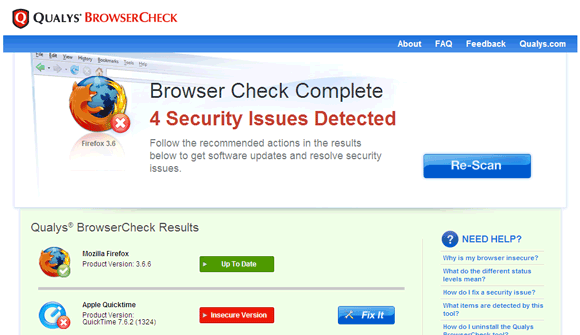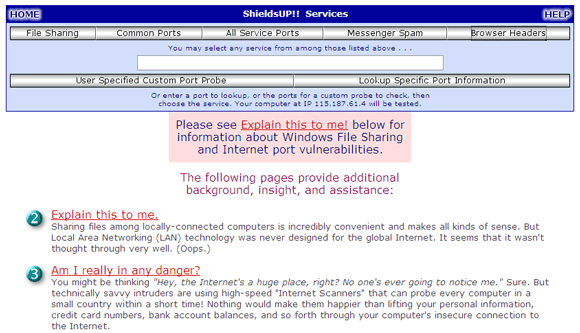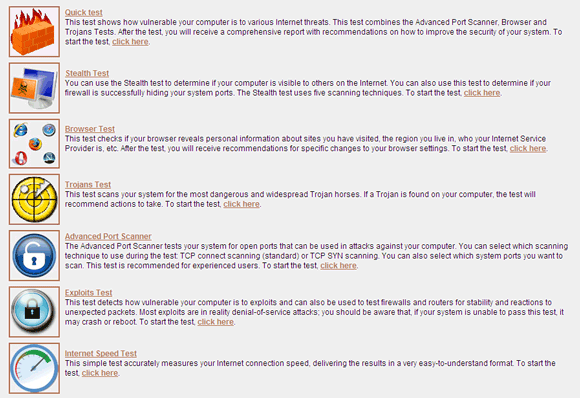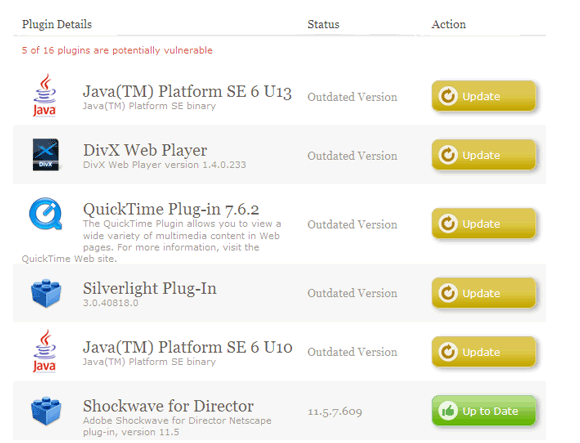<firstimage="https://www.makeuseof.com/wp-content/uploads/2010/07/Bug.png" />
To draw a comparison, the internet is like the badlands of the Wild West. Full of opportunities but also a free-for-all, where you don't know when the next attack is going to come from. The browser is one of the most vulnerable soft spots.
The browser remains our main porthole for viewing the web. It's also the main entry point for malware, Trojans, and others browser attacks of their ilk. Then there are the plug-ins like Firefox add-ons, Active X controls etc. There are many ways for a malicious code to punch a hole through. One of the worst is the 'Man-in-the-browser' attack.
Let's all be paranoid by default and get ourselves a good anti-virus and firewall to begin with. Then, it's always a wise idea to keep our software and sundry apps patched with the latest security updates. But most of all it pays to keep eyes and ears open to what's happening around us. The web may be like the badlands, but it also has heroic sheriffs and town marshals. A few online browser security tools play that role.
[NO LONGER WORKS] ScanIt
ScanIt puts your browser through [NO LONGER WORKS] 19 vulnerability tests. You can run all tests in one go, choose individual tests, or test for bugs specific to the browser (e.g. Firefox has 10 tests). The browser scanning tool supports Firefox, IE, and Opera. The [NO LONGER WORKS] FAQ will give newbies an idea of why browser vulnerability tests are important and the dangers of browser bugs.
Qualys Browser Check
Qualys uses a plugin to check for exploit weaknesses in the browser. Qualys checks Firefox, Chrome, and Internet Explorer for potential vulnerabilities and security holes in your browser and its plugins. It flags insecure and out-of-date versions that put you at risk with color codes like red for "˜Insecure', or "˜Obsolete'.
For any item that is insecure or out of date, a Fix It button appears. Simply click the Fix It button to download the latest update to fix your security issue.
BrowserScope
BrowserScope to start off is a bit geeky. It is an Open Source online tool to compare your browser against the community and see how it fares on security, rich text implementation, network latency, web standards support, and JSKB tests. You don't need to sign-in or download any plugins to run the tests.
You can compare all browsers on your computer and see how each scores. The table with the test results can also be used to see which browser in general is doing well. It seems Chrome is leading Firefox at least on security.
Panopticlick
Panopticlick checks if your browser's configuration is unique. The more unique your browser, the less easily it could be tracked. Web tracking is a privacy risk for users. Online advertisers usually resort to web tracking to collect usage information. Panopticlick collects anonymous data and compares it against its own 5 million strong database to get the score.
Panopticlick is run by the Electronic Frontier Foundation to look into the privacy risks posed by web tracking.
ShieldsUP
ShieldsUP is a firewall monitoring and port scanning online tool. With detailed port testing, the scanning tool displays info on five categories - File Sharing, Common Ports, All Service Ports, Messenger Spam, and Browser Headers. You can also test individual ports (or sets) among the 65535 and lookup specific port information.
The real value of ShieldsUP is in the comprehensive information it provides on firewall security and what you need to shore up your defenses. You don't need to register to run the tests.
PCFlank
PCFlank is a website that tries to ensure that we stay protected on all sides with its range of six tests (and a connection speed test). PCFlank has Stealth Test, Advanced Port Scanner Test, Trojans Test, Exploits Test, Browser Test (for privacy), and a Quick Test that covers the Advanced Port Scanner, Browser and Trojans Tests.
Firefox Official Plugin Check
Our Firefox browser may have more plugins or addons than fleas on a dog's back. But outdated plugins pose the danger of a bite that's worse than a flea. In 2008, we had the first news of a password stealing malware disguised as a plugin. Plugin exploit attacks can be because of poorly written extension code or deliberate design.
I am not sure if Firefox verifies the authenticity of each addon, but the least we can do as users is to keep the ones we have constantly updated. Firefox does it automatically, but the Plugin website is a help.
A browser is just one of the bits that make for a weak or strong computer system. From unsecure Wi-Fi to infected pen drives, a computer user has to monitor both the front and back doors. Fortunately the user has help in the form of more advanced browsers with anti-phishing features, pop-up blockers, private browsing, JavaScript disabling etc.
Some more help can come from our rich list of posts covering everything on computer security and safe browsing:
- Top Five Computer Crimes & How to Protect Yourself From Them
- 8 Best Sources To Follow Computer Virus News & Alerts
- The 10 Best Free Anti-Virus Programs
- 10+ Best Firefox Security and Privacy Addons
- 4 Quick Sites That Let You Check if Links Are Safe
Know any other browser security test tools? Let us know in the comments.
Image credit: pasukaru76 (away for 2 weeks)









